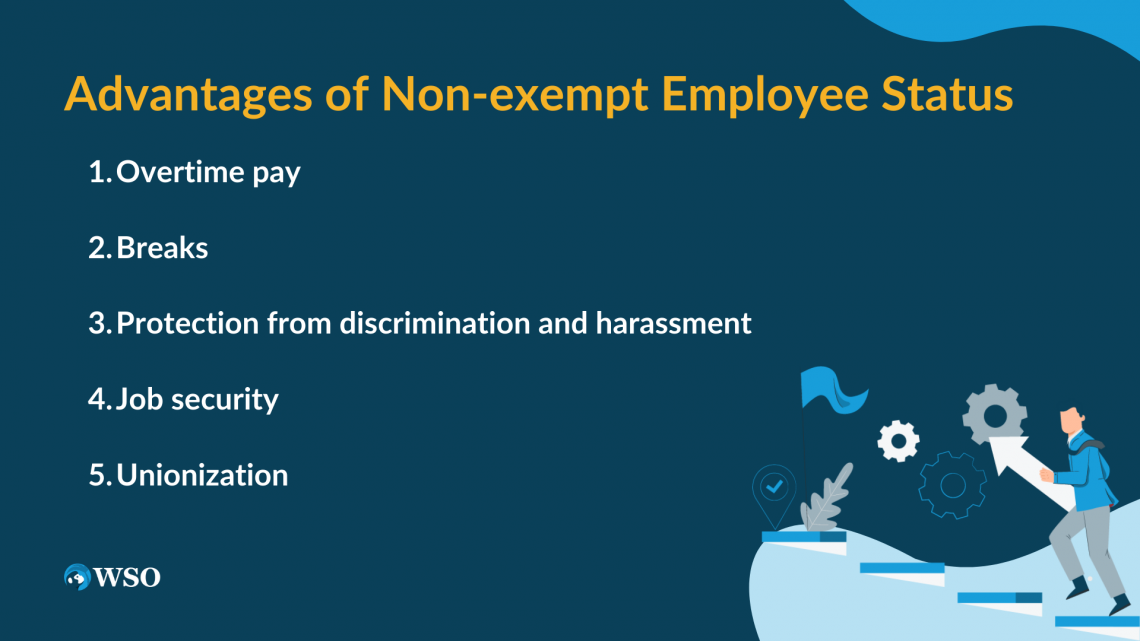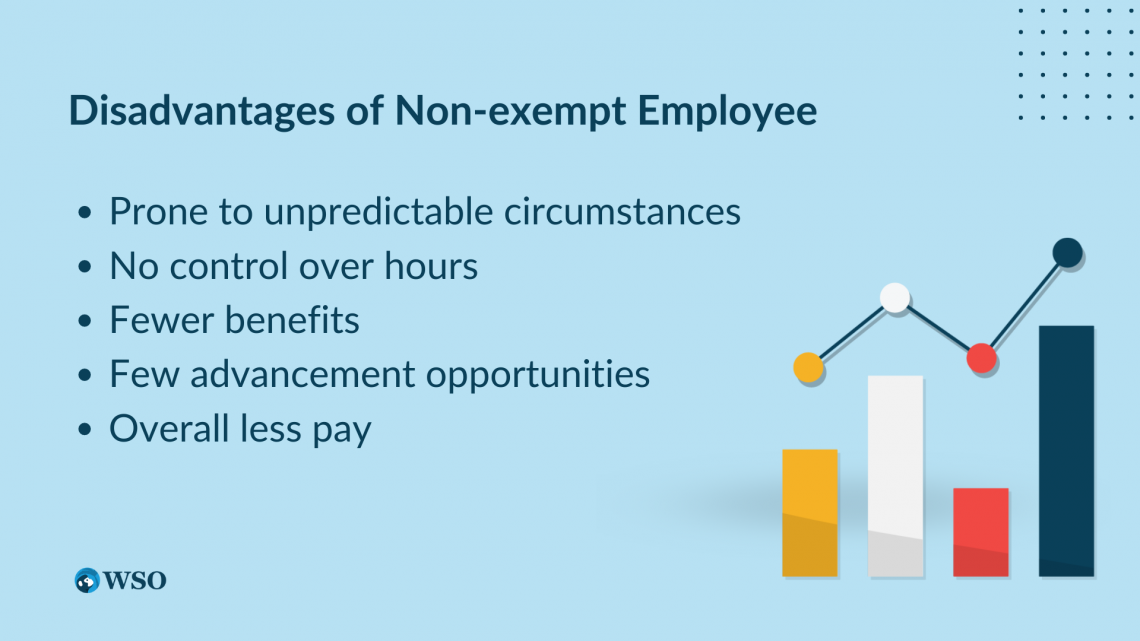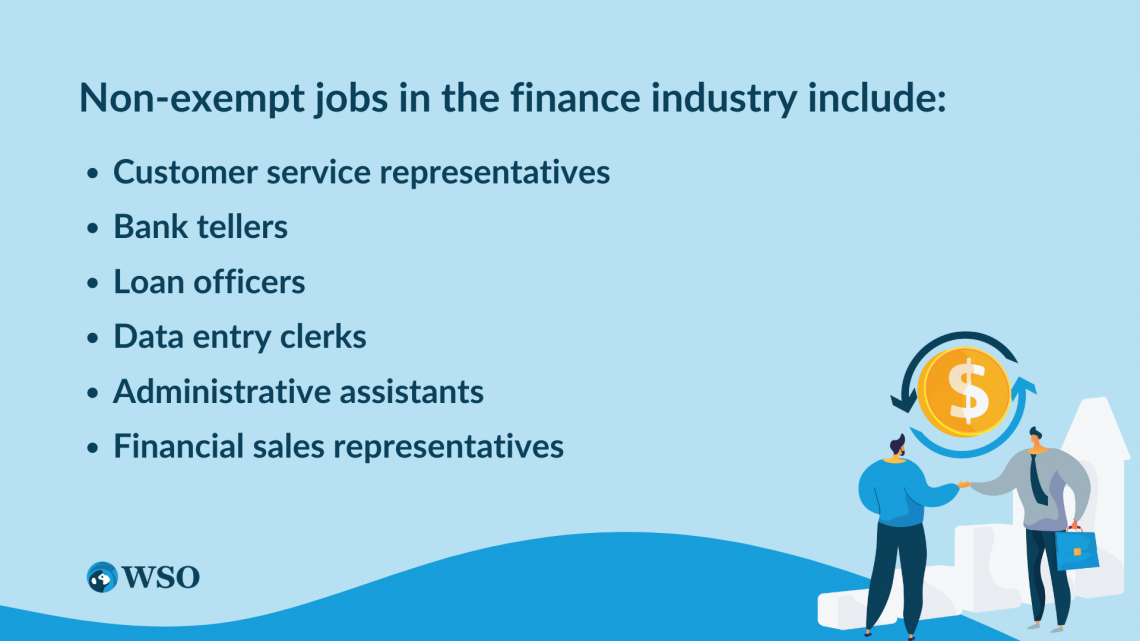Non-Exempt Employee
These employees are entitled to earn at least the federal minimum wage and receive overtime pay and other labor protections under federal and state laws
What Is A Non-Exempt Employee?
Non-exempt employees must be paid at least the federal minimum wage and are entitled to overtime compensation, which is computed as 1.5 times their hourly rate for each hour worked in excess of a typical 40-hour workweek. The federal Fair Labour Standards Act (FLSA) is responsible for establishing this legislation.

Non-exempt workers typically get an hourly rate or a salary that is below a minimum sum decided by the DOL.
Employees who are not excluded from pay have a right to the minimum wage and overtime compensation if they put in more than 40 hours per week.
Non-exempt employees are entitled to earn at least the federal minimum wage and receive overtime pay and other labor protections under federal and state laws - specifically the Fair Labor Standards Act (FLSA).
If you work overtime, you are entitled to a payment of 1.5x your regular wage if you work more than 40 hours per week! You are also entitled to meal and rest breaks and protection from discrimination and harassment.
Examples of people who have non-exempt status would be:
- Electricians, construction workers, or artisans in a non-management position
- Retail workers or food service workers
- Secretaries with no decision-making powers
- Customer services representatives
- Ambulance personnel
Non-exempt employees tend to work in jobs where their main responsibility surrounds routine or repetitive tasks. They have a direct supervisor(s) who manage their workflow, tasks, and duties.
In short, people with non-exempt status are employees not in management, administrative or professional levels, are expected to carry out orders, and do not have decision-making power.
These employees dominate in primary and secondary sectors, while tertiary and quaternary sectors have exempt employees.
Key takeaways
- Non-exempt employees, as defined by the federal Fair Labor Standards Act (FLSA), must be paid at least the minimum wage and receive overtime pay for hours worked beyond a 40-hour workweek.
- To qualify as non-exempt under the FLSA, employees must be paid hourly, earn less than the annual salary threshold, and engage in jobs not considered exempt
- Advantages of being a non-exempt employee include eligibility for overtime pay, breaks during workdays, protection from discrimination and harassment, job security through FLSA rights, and the potential for unionization with collective bargaining power.
- Disadvantages encompass vulnerability to unpredictable circumstances, less control over work hours, fewer benefits compared to exempt roles, limited career advancement opportunities, and overall lower pay due to lower skill requirements.
What Is The Fair Labor Standards Act?
The Fair Labor Standard Act of 1938 is a U.S. law that protects individual workers against unfair and unjust pay practices.
The law creates the right to minimum wage pay, time-and-a-half pay when a worker works past 40 hours a week, and strictly prohibits "oppressive child labor."
The law oversees the enforcement and administration of labor laws across the United States, covering workers almost all government and private employees.
The FLSA has undergone various changes throughout the years. The law is particularly important to employees falling under different categories.
The law outlines various regulations for employed individuals, irrespective of them being salaried employees or paid on a per-hour basis.
The law applies to employees engaged in interstate commerce or in the production of goods for commerce or who are employed by an organization engaged in commerce or in the production of for commerce.
This is unless the employer claims exemption to the same. To know more, refer to the article here.
Non-Exempt Employee Distinctions and Qualifications
Under the FLSA, you must meet certain criteria to qualify as a non-exempt employee.
To be qualified, you must:
- Being paid hourly, at least minimum wage rather than a salaried basis.
- Earn less than the annual salary threshold of about $35,568 per year ($684 per week).
- Working jobs not considered exempt under the FLSA or jobs limits self-supervision, such as manual labor or service work.
This is the general qualification to have non-exempt status. Regulations and qualifications, such as minimum wage rates, may vary based on your state. If you are unsure of your employment status, talk with your human resources department.
Example Of Non-Exempt Employee
Jimmy McGill is a Saul Goodman & Associates lawyer who makes an annual salary of $34,000. Dwight Schrute is an assistant at Dunder Mifflin Scranton who makes $10 per hour and works 40 hours weekly. Who’s non-exempt?
Jimmy is a non-exempt employee in this situation (but obviously, he has his little side gigs) because he earns below the annual threshold of $35,568.
Dwight is also a non-exempt employee - in addition to earning less than the weekly threshold of $684, he has a supervisor, Michael Scott, which means he has limited opportunity for independent judgment.
You should know if you are qualified to be an employee with non-exempt status now. If you think your employer misclassified you as an exempt employee, you may recover your overtime pay from your employee by filing a suit.
Advantages of Non-exempt Employee Status
Since you can be either a non-exempt or exempt employee, there will be advantages and disadvantages - let’s talk about the advantages.

Below are the advantages of being such an employee:
- Overtime pay: The obvious benefit is that you get extra bucks working overtime - you earned it! But, on the other hand, it is tiring work because you have to work more than 8 hours a day, excluding weekends.
- Breaks: You get meals and rest breaks throughout the workday, which is good because you’re not a robot and need an excellent work-life balance. However, you can also improve your overall well-being and productivity, so it’s a win-win for both parties.
- Protection from discrimination and harassment: Although companies will most likely have their no-discrimination and harassment policies, the government also protects you from harm in the workplace. This includes protection from discrimination against race, gender, age, disability, and more.
- Job security: Since employers must follow labor laws, you will be treated better because FLSA gives you rights and protection.
- Unionization: You are more likely to unionize with other non-exempt employees, which allows for collective bargaining power to negotiate better wages, benefits, and treatment.
Disadvantages of Non-exempt Employee Status
Now, let’s talk about the disadvantages of having non-exempt status.

Here are the disadvantages of being such an employee:
- Prone to unpredictable circumstances: While exempt employees can earn money during times of crisis if you are non-exempt, you wouldn’t have the privilege to do so.
- Take COVID, for example. At the pandemic's peak, over 23 million people had lost their jobs because their employers lost or closed businesses or they couldn’t work remotely.
- No control over hours: Although you can decide how many hours you want to work, employers typically expect you - if not explicitly say - to work a certain number of hours.
- In addition, there are instances where even if you wanted to work, you couldn’t, like a cashier wouldn’t be able to work if their store was under construction.
- Fewer benefits: Exempt employees have benefits like paid time off, healthcare coverage, and retirement plans. If you are non-exempt, you probably won’t have paid off or very good healthcare coverage. However, this varies very much with your employer.
- Few advancement opportunities: Since the nature of these employees is generally lower skill, it’s hard to receive good career advancement or promotions.
- Overall less pay: Since experience and knowledge are not required, the pay is low since the threshold to get non-exempt jobs is relatively lower.
Non-exempt jobs in the Finance Industry
Since WSO is a finance community, let’s discuss how it would affect our finance monkeys.

The qualifications to be a non-exempt employee are the same. Non-exempt jobs in the finance industry include, but are not limited to:
- Customer service representatives
- Bank tellers
- Loan officers
- Data entry clerks
- Administrative assistants
- Financial sales representatives
When you first get out of college and land a job or an internship, you are most likely a non-exempt employee because you have no decision-making power and you’re likely to have a pretty low wage.
There is a phenomenon where firms may use fake managerial titles to make you an exempt employee, so they can get out of paying you overtime.
If you get a job with the title “director of customer happiness,” you’re probably just a customer care representative with the special treatment of getting zero overtime compensation.
More examples of these titles are:
- Director of First Impressions (front desk clerk)
- Manager of information transcription (taking notes)
- Brand evangelist (marketing associate)
- Information digitalization developer (making Excel sheets)
- Manager of Idea Presentation (making PowerPoint slides)
Hence, you should be aware of the titles given to you! That shouldn’t justify taking away compensation for your hard work.









or Want to Sign up with your social account?